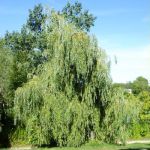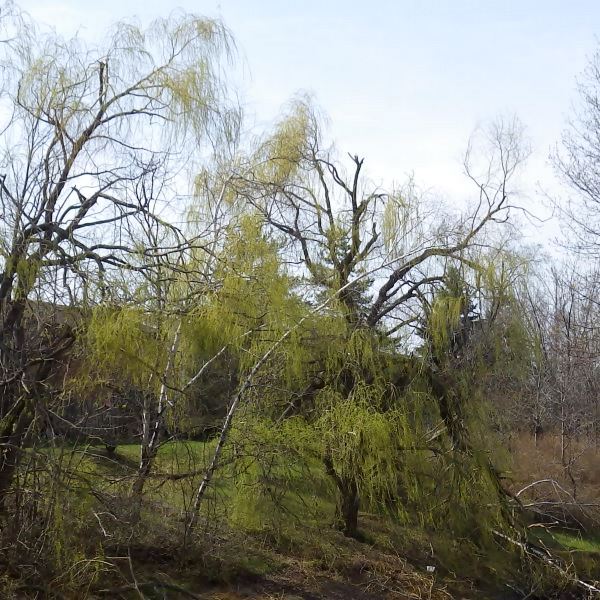Willow trees belong to several different species.
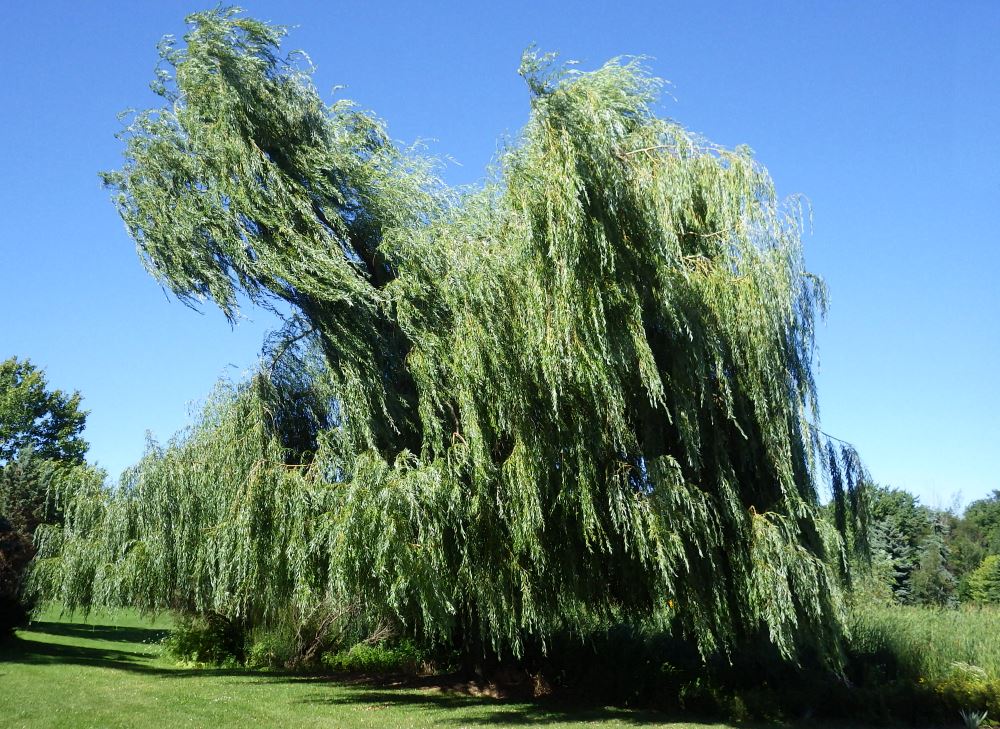
Weeping Willow (Salix sp.), Milliken Park.
Sometimes it is not easy to distinguish them and they hybridize easily so it is not always practical to tell which species is which unless you are a botanist, or just sequence their DNA.
Nevertheless they are recovering.
These pictures are weeping willows which can be Salix babylonica, or Salix alba tristis or some hybrid between more than ones species of willow trees, I really cannot tell.
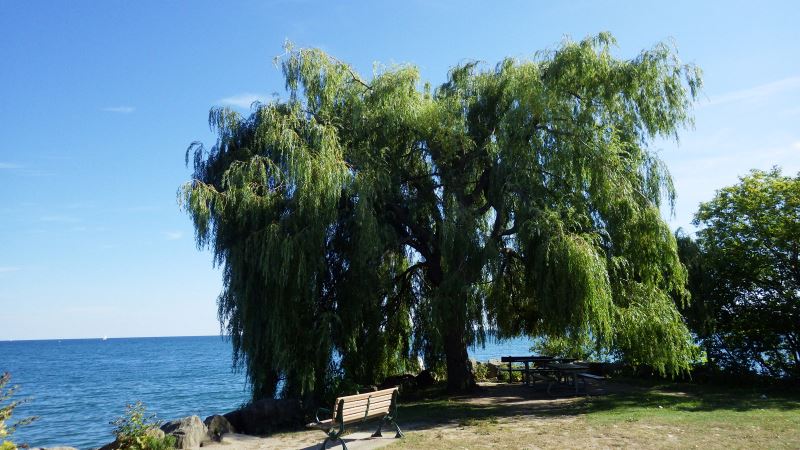
Willow tree next to Lake Ontario, Bluffer’s Marina.
Willow trees usually grow in wet soil, usually close to bodies of fresh water such as river banks and lake shores. They are pretty ubiquitous in all areas that is not too dry.
Willow trees tend to have thick foliage providing shade.
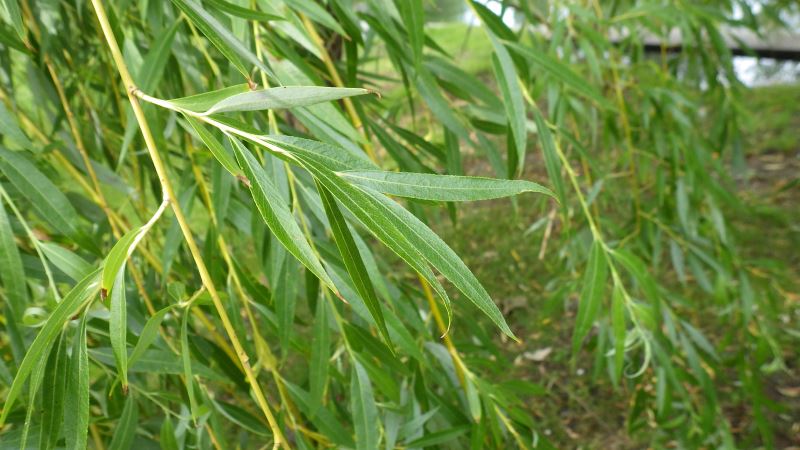
The leaves of a weeping willow, Hungary.
Willow bark contains Salicylic acid which is used as an anti-inflammatory and also as a preservative. Both of these uses are becoming obsolete. As an anti-inflammatory Salicylic acid has been replaced by a closely related molecule Acetylsalicylic acid (Aspirin) which has fewer side effects.
Some animals do eat willow bark and leaves. E.g. beavers do like to eat willow, and in fact the Salicylic acid content of their secretion (castoreum) comes from the willow bark in their diet.
Willow tree branches tend to be very thin when they are young and even though they are flexible they will eventually break if forced. A lot of trees have been damaged by the ice storms in Toronto last winter, and willow trees seem to have suffered more than most other trees.
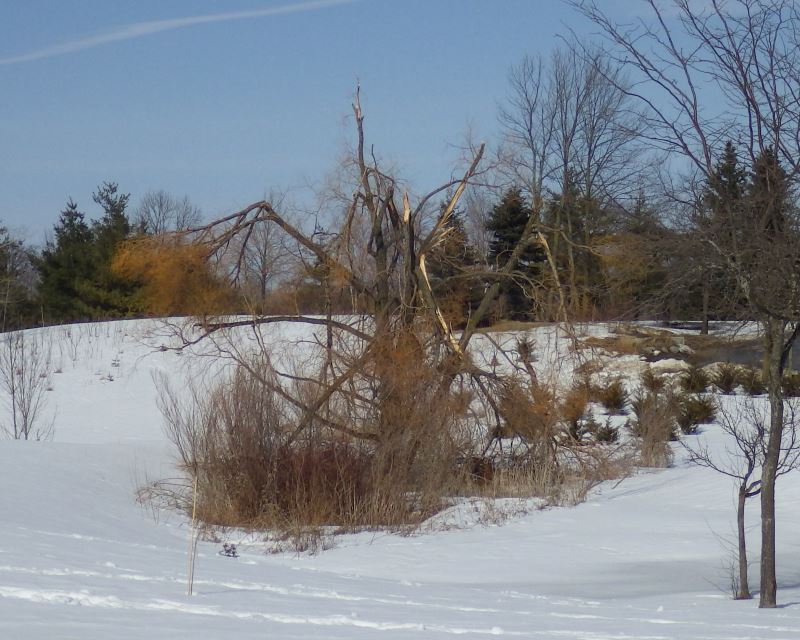
Willow tree damaged by the ice storms in the winter, Toronto Zoo.
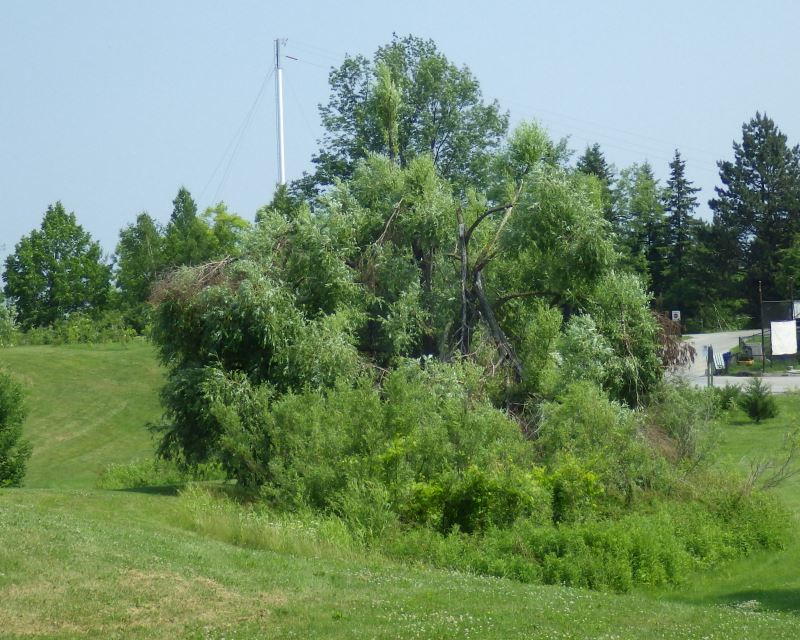
The same willow tree in the Toronto Zoo recovering in the summer.
Willow trees are often planted by humans for ornamental purposes. Also their young branches are used to make wicker baskets and other objects made using a similar weaving technique such as fish traps.
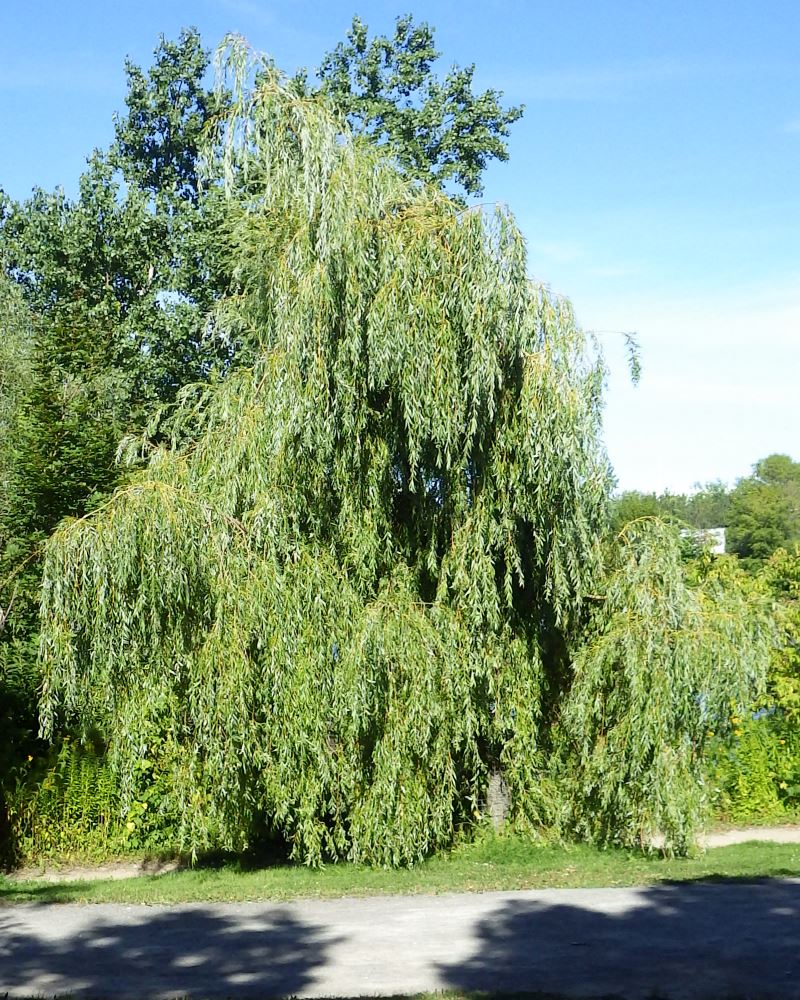
Willow tree, Bluffer’s Marina.
Further Readings:
Salix babylonica on Wikipedia.
What Is the Difference Between Willow Trees and Weeping Willow Trees?
Salicylic acid on Wikipedia.


